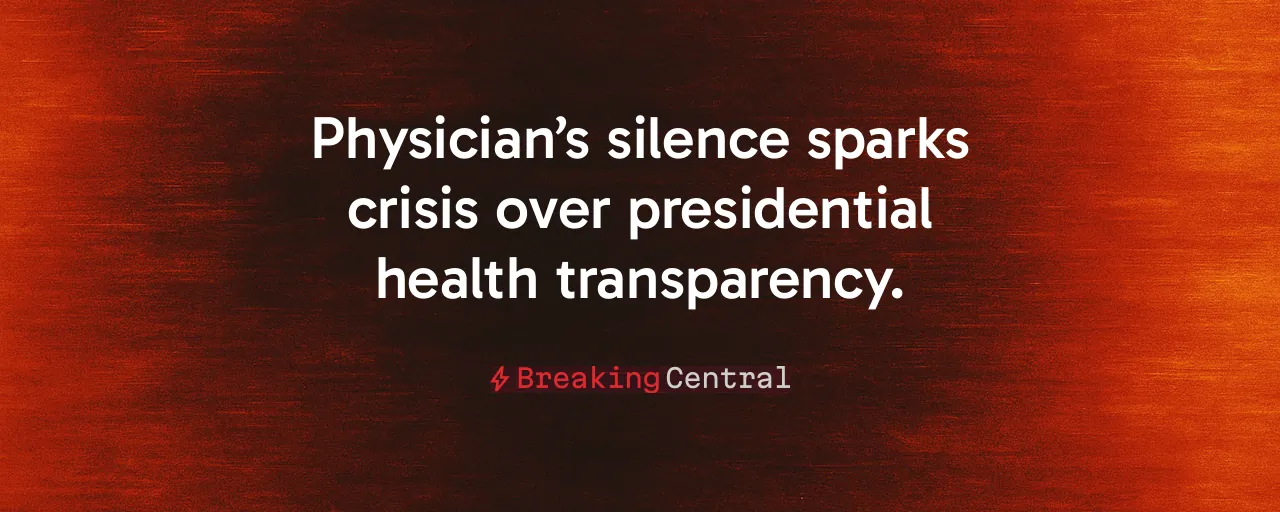A Physician's Silence Shakes Public Trust
On July 9, 2025, Dr. Kevin O'Connor, former White House physician to President Joe Biden, faced the House Oversight Committee under subpoena. His refusal to answer questions about Biden's mental and physical health, invoking his Fifth Amendment right, sent shockwaves through the Capitol. The move intensified scrutiny over whether the public was misled about the former president's fitness during his term. The event highlights a turning point in the debate over transparency in leadership.
The closed-door session lasted less than an hour. O'Connor declined to confirm or deny whether he misrepresented Biden's condition, leaving lawmakers and the public grappling with unanswered questions. House Oversight Chairman James Comer called it evidence of a deliberate effort to conceal critical information. The controversy is heightened by broader concerns about Biden's late-stage prostate cancer diagnosis and his abrupt exit from the 2024 presidential race.
Voters expect clarity about their leaders' ability to govern. When a physician entrusted with that responsibility opts for silence, it erodes confidence in institutions. The issue transcends partisanship, impacting the core of democratic accountability. If those in power obscure the truth, the electorate's ability to make informed decisions weakens.
Unveiling a Pattern of Concealment
Evidence suggests Biden's inner circle tightly controlled information about his health. Reports from the 2024 campaign, including accounts in the book Original Sin, describe aides managing West Wing operations as Biden's capacity waned. His faltering debate performance against President Donald Trump, now in his second term, cemented doubts about his fitness, prompting his withdrawal.
Senate Judiciary hearings in June 2025 revealed allegations of a coordinated effort to downplay Biden's cognitive challenges. Witnesses claimed media outlets aligned with the administration suppressed stories about his health. The late disclosure of aggressive prostate cancer, detected well into his presidency, further fueled suspicions of intentional secrecy.
Historical parallels abound. President Woodrow Wilson's 1919 stroke was hidden from the public, with his wife and aides effectively governing. Franklin Roosevelt's heart disease in 1944 and Ronald Reagan's later Alzheimer's concerns followed similar patterns. These cases underscore a recurring tension: balancing a leader's privacy with the public's right to know.
National Security Hangs in the Balance
An impaired commander-in-chief poses risks beyond politics. Decisions on military action, economic policy, or global diplomacy demand sharp judgment. If unelected aides wielded presidential authority, as some allege happened under Biden, it raises questions about the legitimacy of executive actions. The use of an autopen to sign documents, now under Justice Department scrutiny, amplifies these concerns.
The 25th Amendment, enacted in 1967, provides a mechanism to address incapacity but requires proactive invocation by the vice president or cabinet. Its rare use highlights a gap in accountability. Without clear evidence of Biden's condition, speculation about who truly held power persists, undermining trust in the chain of command.
A Call for Legislative Safeguards
Lawmakers are responding with proposals to prevent future secrecy. One key proposal requires annual cognitive and physical exams for presidents, conducted by independent physicians. Results would be reviewed by a bipartisan medical board and reported to Congress, balancing transparency with privacy. Such a system could restore public confidence while respecting medical ethics.
Another proposal strengthens enforcement of the 25th Amendment, clarifying procedures for assessing incapacity. Some advocate for criminal penalties for officials who knowingly conceal a president's health issues. These measures aim to ensure that power remains with elected leaders, not unelected staff.
Navigating Medical Ethics and Public Duty
O'Connor's silence reflects a broader dilemma for physicians serving presidents. Medical ethics, including HIPAA and state licensure rules, prioritize patient confidentiality. The presidency, however, is an extraordinary role. The American Medical Association's code acknowledges that public interest may justify limited disclosures, but no universal standard exists.
Requiring physicians to testify risks deterring qualified professionals from serving. A balanced approach could protect doctors from liability when complying with lawful subpoenas while preserving core privacy protections. This compromise would address concerns without politicizing medical practice.
Restoring Faith Through Action
The controversy surrounding Biden's health calls for structural reforms to ensure no president's condition is hidden from the public, extending beyond mere hearings. Independent oversight, clear disclosure rules, and robust legal frameworks can rebuild trust. These steps honor the electorate's right to know while safeguarding national stability.
Voters deserve leaders whose fitness is beyond question. Transparency is a democratic necessity, and it transcends partisan divides. By acting decisively, Congress can close the door on secrecy and strengthen the foundation of governance.
As the nation moves forward under President Trump's second term, this moment offers a chance to set a new standard. The public's trust, once shaken, can be restored through accountability and clarity. The path ahead lies in ensuring that those who lead are fit to serve, with no shadows obscuring the truth.
